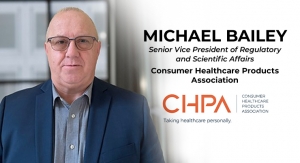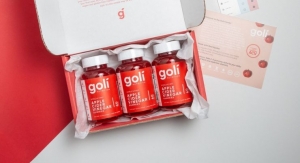Until recently, contract research organizations (CROs) and clinical services organizations (CSOs) were not interested in researching supplements and functional foods. In fact, most CROs/CSOs admit that in the past they only devoted a small fraction of their business to studying nutraceutical products. But today, for many CROs/ CSOs, the nutraceuticals segment of their businesses is growing faster than other segments, like pharmaceuticals, for example. It is the belief (and hope) of CROs/CSOs that science, not marketing, will become the cornerstone of the nutraceuticals market in the future.
Presently, the nutraceuticals market is dealing with a raft of issues, from new dietary ingredient (NDI) notifications to qualified health claims to generally recognized as safe (GRAS) applications to ramped up enforcement to the eventual publication of good manufacturing practices (GMPs) for dietary supplements. In addition, several nutraceutical companies are realizing that they need to conduct research simply because it is a good idea to do so. Taking these issues into consideration, CROs/CSOs can look forward to several very busy years in the nutraceuticals market.
Differentiating Between a CRO & CSO
There are differing views on what is required of either a CRO or CSO. Suffice it to say that the services they offer are different yet similar. In general terms, Pamela Wertalik of ContractLaboratory.com, Calgary, Canada, says CROs and CSOs are similar in their ability to provide pharmaceutical and nutraceutical manufacturers with additional capabilities and highly specialized services without the overhead and development of expensive infrastructure. In addition, they also enable nutraceutical companies to access the knowledge and experience they may not possess internally.
The major differences between a CRO and a CSO, she said, generally lie in the range and specialty of services offered. (ContractLaboratory.com is not a CRO or CSO, and it does not work directly with nutraceutical companies. Instead, the company facilitates the CRO and CSO process by providing one centralized location for submitting contract requests.)
Making an even more clear distinction between the two, Darryl Sullivan, senior manager, Technical Services, Covance Laboratories, Madison, WI, said, "A CRO will test products and qualify/quantify components to make sure the material is ready for either a clinical trial or market introduction. A CSO deals mainly with the efficacy and performance of the products in human volunteers."
Breaking the CRO market down further, Frank Jaksch, president and CEO, Chromadex, Santa Ana, CA, said, "One side of the CRO market has to do with examining the chemistry (quality control, product/manufacturing, etc.) of finished products or raw materials, while the other side evaluates the biology of a particular product or raw material through animal studies, in vitro studies or bioassays."
Mr. Jaksch said if companies are starting with a brand new raw material, then they should be setting aside between $250,000-$4 million to get that product ready for clinical studies and/or market introduction. He emphasized the importance allocating real research dollars to producing products that are proprietary and consistent. "In the pharmaceutical world, companies devote 5-10% of their revenues to research. Supplement companies are devoting far less monies to such activity," he said. "In order for companies to be progressive, they should be spending a percentage of their revenues on research."
Kristen Reynolds, manager-Marketing & Sales, KGK Synergize Inc., London, Ontario, Canada, agreed. "Unfortunately our internal research suggests less than 5% of nutrition companies are currently involved in pre-clinical and clinical research, with expenditures typically being less than 0.5% of total sales," she commented.
Most CROs work with a range of nutraceutical companies, from those that are large and/or have a pharmaceutical parent to those that are very small and have only one or two products. Mr. Sullivan said typically the very large companies approach research as they would with pharmaceutical products. "They want to be very cognizant of any residues that might be in the product or any safety issues that might occur with the product, which is why they put together such large quality control systems before going to market," he said. "Smaller companies on the other hand have a tendency to put the product together to get an idea whether or not the product is going to sell before they invest too much money in research on the safety and quality control."
Together, CROs and CSOs make a great team, according to Alex Schauss, PhD, FACN, president and CEO, AIBMR Life Sciences, Inc., Puyallup, WA. "CROs can play an important role in conjunction with a CSO because they know the language of clinical trials and science, and can review everything from protocol development to making sure the study is completed on time and on budget," he said. "In short, the CRO will make sure that the study is carried out according to the client's wishes."
Stephen Ruckman, programme management and consultancy, Huntingdon Life Sciences, Cambs, U.K., said what sets his company apart from the CROs out there is its role in functional food research. "We are actively involved in in vitro and in vivo testing to determine the health benefits of functional foods. Currently, we are one of few organizations that carry out research in this area," he said, adding, "Most companies in the functional food or nutritional beverage segments will sell their products for a period of time and then plow money back into R&D. The companies will typically use that research to gain a marketing advantage."
Common Research Requests
Qualified health claims are a major impetus for companies to do the research these days and many CROs/CSOs are fielding requests in this area. The problem is, according to Ioana Carabin, MD, president and medical director, Women's Health Sciences Institute-a 501 (c)(3), non-profit organization-and a consultant to Burdock Group, Washington, D.C., the process for claim substantiation, especially as it pertains to qualified health claims, remains very complex. "Although new regulatory frameworks for qualified health claims in labeling of conventional human food and dietary supplements have been introduced and updated, they have yet to be finalized," she said.
AIBMR's Dr. Schauss says most companies approach CROs to design efficacy studies because they have historically worked according to a marketing paradigm. But he said he continues to point out to nutraceutical companies that the most important place to start from an industry, regulatory and legal point of view is with the safety.
Another hot area for research is supplement/drug interactions. Mr. Sullivan noted that clinical research is only just starting to look into the interactions between certain nutraceuticals with other dietary supplements and pharmaceuticals. "This is something not heavily investigated in the dietary supplement arena, yet it is very important, especially in the elderly who are increasingly contemplating taking dietary supplements and are frequently taking prescription medicines at the same time," he said.
Ms. Wertalik of ContractLaboratory.com said the most common requests she sees relate to preclinical efficacy, toxicology and finished nutraceutical product testing. While a driving force of these requests result from regulatory issues, she said the majority of these are directed toward the support of labeling claims.
Speaking of regulatory issues, many times companies are uneducated as to what is necessary to comply with regulations domestically and internationally. This was discussed by Ras Trokovic, head of Business Development Europe for Life-Science-Man Oy Ltd, Espoo, Finland, who said a lot of the requests he receives stem from regulatory concerns. "The most common requests from nutraceutical companies have to do with regulatory affairs," he said, adding, "Life-science-man provides regulatory contract services to companies, which we believe should be the first part of any action plan. Taking that into consideration, we then advise companies which kinds of studies are appropriate."
Undertaking a Research Project: The Issues
This market is becoming expensive to operate in and costs are only going to escalate with the GMPs around the corner, claim substantiation moving to the forefront and NDI notifications becoming the "gatekeeper" of dietary supplement ingredients. Most companies cannot work out these issues internally, which is why they are increasingly turning to CROs/CSOs for help.
Unfortunately, several companies in the nutraceuticals space remain quite na�ve when it comes to research costs. Douglas Kalman , MS, RD, FACN, director of clinical nutrition, Miami Research Associates, Miami, FL, offered his perspective on this issue. "Most nutraceutical companies lack understanding when it comes to what research costs. A company can get one or more studies (small or medium scale) for the price of one or two advertisements in a high profile periodical," he said. "Many firms appear to have no problem putting out loads of marketing, but ask them to spend a small portion of their advertising on safety and efficacy studies (for substantiation, intellectual property, etc.) and they hesitate. This is a hurdle I hope is overcome in the near future."
Covance's Mr. Sullivan agreed on the na�vet� of companies when it comes down to cost, who discussed the issue from an R&D standpoint. "Companies are usually taken back at the cost of a research project. They frequently don't understand the testing itself, what procedures are required and what the variability of the tests are, and how important it is to do a certain number of tests on several different lots of products," he said. "For example, sometimes companies will put a product together in the experimental R&D stage and they will do one test on it that turns out to be very promising. From there they will go right into manufacturing."
In reality, Mr. Sullivan said, companies typically need to test at every step from R&D formulation to scale up and then into production mode. He also pointed out that companies should test the first three lots of active ingredients of the product before they ever consider selling it. "Companies assume from one small snapshot of testing that they can go directly into manufacturing," he said, adding, "In my view, this is not the correct way to do things."
To remedy some of these issues, Mr. Sullivan believes there are some benchmarks in pharmaceutical testing that would be very helpful in testing dietary supplement products. "The supplement industry would do well to adopt the phase I-III approach to research because many times companies don't know what they are buying even though they are buying in good faith," he said. "This causes two problems: companies wind up having less of the active ingredient than they expected and they also have no idea what else might be making up the remainder of the product. Unfortunately, companies seem to rely heavily on the 'C of A' (certificate of analysis) to tell them they purchased a 99% pure product, when in fact it is likely much less than that."
Mark Posno, director of business development, The Netherlands Organization for Applied and Scientific Research (TNO), Zeist, the Netherlands, offered his point of view on product versus ingredient testing. "In Europe, people think about food and in the U.S. people think about pills. In Europe, most companies who conduct research start at the product level. This was the case with Unilever when it brought its phytosterol-fortified margarine to market," he said. "In order to receive regulatory approval, Unilever had to test the margarine for safety and efficacy, even though a wealth of data already existed on the phytosterol ingredient." He went on to say that the situation is quite different in the U.S. where companies are conducting most research on the ingredient level. "There is something missing in that equation, I believe. The way an ingredient interacts in a food or beverage matrix is totally different than how the ingredient may act on its own," he said. "So the problem is, how do you know the ingredient still works when it is formulated into a food or beverage matrix?"
AIBMR's Dr. Schauss believes companies should pursue only those studies that fit the product being marketed. "Doing a study on a disease makes less sense if the outcome might be used to market a product using structure/function claims, for example," he said. "However, if the client is a global company, it may be able to use those studies in markets that permit such studies to substantiate health claims."
Making sure the study fits the claim is also rooted in cost, however. While research is not cheap, Dr. Schauss says he is frequently shocked at the amount of money being charged in this industry for a clinical study. He said a lot of the time the higher price of a study results because CROs/CSOs overestimate the amount of subjects necessary for a clinical trial. "Anyone involved in the clinical services area should know that you have to do a power analysis or power calculation to determine the number of subjects required for a clinical trial, but often CSOs pull the number of subjects out of thin air," he commented.
Offering his view on company-sponsored research was James Komorowski, MS, vice president, Technical Services & Scientific Affairs, Nutrition 21, Purchase, NY, who pointed out that companies who invest in science often get criticized as "paying" for the science. "People always want to know who paid for the study. For the company that invested in the research this does not always play in its favor," he said. "We believe that a company should be applauded for investing in the research and that is not widely done right now."
Another concern is the fact that many studies conducted in the nutraceuticals industry are not published in peer-reviewed journals. Instead, said Dr. Schauss, companies will have the CRO present the study data at a scientific or medical conference or tradeshow. He says the problem with this is that the client relies upon nothing more than an abstract presented at a conference. Because FDA and FTC prefer to see published studies, he recommended that the industry work toward getting studies published in peer-reviewed journals more frequently.
The other side of that issue, however, is that companies may be reluctant to publish study results because of the rampant borrowed science problem. In other words, companies are fearful to publish study results because it will only help their competitors.
This is why KGK's Ms. Reynolds says that the research it conducts for clients remains confidential. "KGK, as a CRO, has an exclusive confidentiality clause written into all agreements, stating that all research and findings from the work performed by KGK belongs exclusively to the client," she said.
Other recurrent complaints about conducting research in the nutraceuticals industry revolve around patent protection and exclusivity. This is nothing new. While Mr. Jaksch of Chromadex feels that FDA will protect those companies that do the research properly, he also believes it might be helpful if the agency instituted some kind of protection status for research on nutraceutical products.
Scott Singer, president, Effective Research, Inc. Hollywood, FL, agreed. "If FDA does get involved in the case that companies go out and prove safety and efficacy, and then offer some protection, I think companies will have something to strive for," he said. "I think FDA is really trying to find a way to solve this problem by incentivizing research for supplement and functional food companies. This could be a positive for all parties invovled."
Planning a Human Clinical Trial
As most companies know, anecdotal evidence is not support enough to launch a product, but it can provide the impetus to move ahead with that product in terms of doing more research and establishing a stronger science base. Going forward on this front requires that companies be aware of several factors in planning a clinical trial.
As a company heavily involved in research, Nutrition 21 has had a fair amount of experience with CROs/CSOs. Mr. Komorowski says in order to go ahead with the design of a clinical study companies really need to determine what they want from that study (i.e., to be able to make a claim of some kind). "If you are conducting some early research and you don't want to invest a lot of money until you see that your product shows some signs of safety and efficacy, like a proof of principle study, that is perfectly acceptable," he said. "If you want to conduct a study that you want published and will support claims that is a different story. You would want a study of this kind to be pharmaceutical quality."
By definition, says Burdock Group's Dr. Carabin, a health claim has two essential components: a substance and a disease or health-related condition. According to the FDA, claiming efficacy in humans has to be demonstrated through testing, specifically through clinical trials, while the level of claim allowed by the agency (B, C, or D) will depend on the totality and quality of the overall data, and especially submitted clinical data.
Probably the greatest challenge the industry encounters in demonstrating efficacy for an ingredient or product, says Dr. Carabin, rests with the fact that there is no "cookie cutter" approach to the kind and number of clinical studies necessary. Following her presentation at a symposium titled, "Qualified Health Claims and New Regulations: A Critical Juncture," which was held at the IFT show in mid-July this year, Dr. Carabin discussed several difficulties encountered by health claim petitioners in obtaining and submitting the appropriate efficacy data for FDA, and stressed the importance of careful planning.
Specifically, Dr. Carabin said, "Up-front planning likely affords a well-developed hypothesis, leading to reproducible and unbiased data that adds credibility to the study and saves cost in the long run. Attention to study principles and key components including, but not limited to study design, study population, and sample size are essential in developing the quality data required by the FDA for submission and approval."
Dr. Carabin also highlighted other important parameters that should be addressed by the clinical study protocol, including inclusion/exclusion criteria, screening and baseline evaluations. "These parameters have to be addressed up front and not as an afterthought to ensure all subjects enrolled in the trial are on equal ground at the start of the study," she offered. "Adverse events also need to be included in the protocol and the various levels of severity have to be described at the start, along with the methods of reporting, recording and treating."
Predicting a Paradigm Shift
For the future, research will definitely become more of a priority in the nutraceuticals market, according to most experts, and this is a good thing. However, in order for this to happen, AIBMR's Dr. Schauss believes that this industry must stop worrying about its critics and concentrate on creating a legitimate science base for its products. "What will keep consumers, the media, regulators and legislators off this industry's back will be its abandonment of a reliance on a marketing paradigm and the adoption of a science paradigm," he stated. "Companies must realize that it is the research that will ultimately strengthen marketing efforts."
Dr. Schauss went on to say that the shift from marketing to research is slowly taking place for this industry. "It is amazing how busy we are right now," he said. "In previous years, if I had five or six studies ongoing I was pretty busy and right now AIBMR is working on over 50 nutraceutical product studies."
Mr. Sullivan from Covance says he is really excited for the future. "I am thrilled at the amount of research taking place in this industry today because it is an indication that it is headed in the right direction," he said. "Although companies don't have unlimited R&D budgets, they understand the need for quality research and how important it is for the credibility of this industry moving forward. Companies are making better decisions today than they were even a couple of years ago."
Using Canada as an indicator, Ms. Reynolds said, "Especially with Canada's new Natural Health Product regulations, supplement companies are now required to show both safety and efficacy data to Health Canada prior to marketing a new supplement. This is causing companies to prove their products' safety and efficacy on their own behalf, rather than relying on existing data." She continued, "The U.S. regulations appear to be heading in the same direction, however, in our experience, companies are realizing the value that research has on the sales and marketing of their product and more supplement companies are taking this initiative."
Ms. Reynolds has also noticed that an increasing amount of functional food companies are showing an interest in completing research studies on both the functional ingredients, as well as the finished products. She said this is because consumers are showing a growing interest in functional foods as an alternate delivery system to tablets, capsules and soft gels.
TNO's Mr. Posno says the future will play out in two ways. "First, there is going to be a technology dimension to consider in the future, which will have everything to do with determining safety and efficacy," he said. "Second, there is going to be a consumer interest dimension, which will address taste and convenience. Future products must find the balance between scientific rational and consumer interest." NW
STAY TUNED! In our November issue, representatives from Covance, Chromadex and Flora Research will discuss in more detail how to work with a contract laboratory, the evolution of analytical methods and how to identify a quality certificate of analysis (C of A).



























